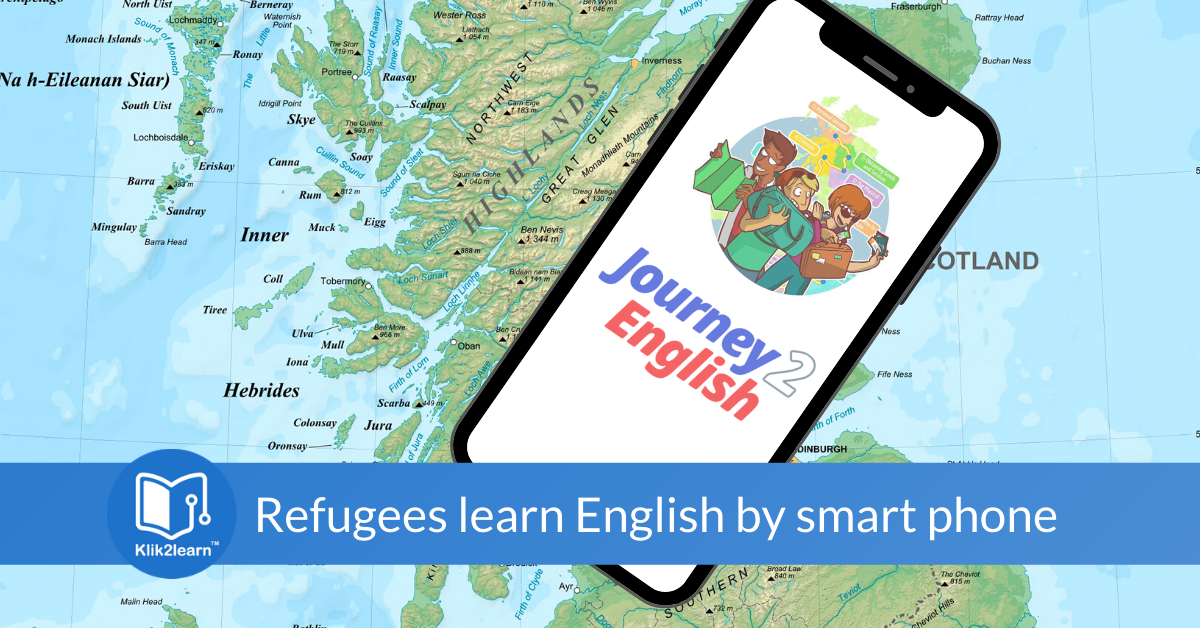
A total of 30 families from war-torn Syria are being taken in throughout the Highland Council area, including four in Alness.
But it was the arrival of refugee families on the isle of Bute in January which first presented officials with the problem of how to help vulnerable people with little or no English to integrate in an isolated community with no support facilities.
Now former Portree High School teacher Ann Attridge, who has a post-graduate degree in linguistics, has developed the first English-language qualification that refugees can sit and pass on their mobile phones.
She used technology normally associated with the computer games industry to produce “Journey2English”, an interactive language course that students can access on their smartphones.
It helps non-native speakers learn English within three months and, by passing a final test, they can gain a qualification, equivalent to a National 4, validated by the Scottish Qualifications Authority.
The course, launched earlier this year by her Glasgow-based company Klik2learn, is also being used by eastern European migrants for whom work and family commitments mean they do not have time to attend language classes.
Ms Attridge left her job as an English teacher at Portree High School in 2010 to take up an Enterprise Fellowship with the Royal Society of Edinburgh. She said: “I was approached by officials from Renfrewshire and Argyll and Bute councils who have been tasked with caring for Syrian refugees placed in their areas by the Home Office.
“They were at a loss about what to do with the 29 asylum seekers who had been placed in those comparatively remote parts of the country without the necessary skills in English to be able to communicate properly.
“The funding they received covered housing and schooling for the children but there was only enough money to pay an English tutor for a couple of afternoons a week. The rest of the time they were hanging around with no access to IT and their English was not improving.”